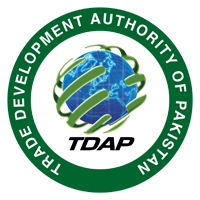LAHORE: Pakistan Tehreek Insaf (PTI) Women Wing President and FPCCI Executive Committee Member Fehmida Jamali said that the government would have to increase its exports and remittances for paying back rising debt obligations.
Fehmida Jamali expressed these views while talking to media and urged the Trade Development Authority of Pakistan (TDAP) to increase its exports on priority and the volume of remittances so that repayment of loans could be easily made and added that the production cost, which was expected to be reduced by the government through subsidy, would stay unchanged as electricity charges for the industry had been fixed at 11 cents per units compared to seven cents in other countries, which is aimed at boosting their exports by making products’ prices compatible.
Jamali said that the external debt of the country has been mounting massively, and the country would have to repay $11 billion in 2017-18 as the country’s external inflow situation has not been very rosy and it would create shock waves for the economy.
Jamali said, “The importance of exports in the country’s development is obvious. The fact that this question has to be posed and answered is a sad reflection of our policymakers’ priorities and a lack of comprehension”.
Fehmida Jamali further said that the recent performance of the country’s exports dovetails into a larger — and worrying — picture of long-run stagnation and decline relative to the other dynamic developing countries.
Jamali said, “While Pakistan’s market share of global exports is one way of looking at this, and which has declined from 0.16pc in 1990 to 0.13pc, the statistic that best captures our attention to exports and our ‘export-orientation’ is the size of the export sector as a percentage of the economy. Pakistan’s merchandise exports have fallen to a shocking 7.3pc of GDP — from a peak of over 15pc in the early 2000s. At this level, merchandise exports are today at virtually the same level as worker remittances into the country — and at their lowest level in decades”.
Jamali concluded that the country’s economic growth is slow paced when compared with the other developing countries.



































